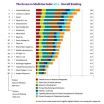In this battle, many candidate pharmacotherapies have been tested, but none have succeeded sufficiently to be adopted widely. Perhaps like cancer, heart disease, and AIDS, cocaine dependence is a disorder that requires combinations of medications for effective treatment.
In this issue of Biological Psychiatry, researchers from Columbia University and New York State Psychiatric Institute report a step forward in this effort. They tested a medication approach that unites two themes in addiction research – amphetamine and topiramate.
There are clues that stimulants, like amphetamine, methylphenidate, and modafinil, reduce reward dysfunction and deficits in executive cognitive control mechanisms associated with addiction. This approach fits with the "self-medication" hypothesis of addiction, which suggests that some people use drugs to treat symptoms that lead them to addiction or that emerge as a consequence of addiction.
There is also evidence that topiramate may be the most effective current pharmacotherapy for alcoholism. There are gaps in our understanding of exactly how topiramate works to combat addiction, but it shows signs of efficacy in animal models of stimulant addiction. In a recent large study of methamphetamine addiction, it appeared to reduce the intensity of methamphetamine use.
Using this knowledge as building blocks, Mariani and colleagues set out to test a combination of mixed amphetamine salts and topiramate for the treatment of cocaine dependence. They recruited cocaine-dependent treatment-seeking adults who were randomized to receive either the combination treatment or a placebo for twelve weeks. It was conducted as a double-blind study, using matching capsules, so that neither participants nor the research staff knew which treatment each individual was receiving.
They found that the participants receiving the combination treatment achieved three weeks of continuous abstinence from cocaine at a rate twice that of placebo (33% versus 17%). There was a significant moderating effect of the total number of cocaine use days, which suggests that the combination treatment was most effective for participants with a high baseline frequency of cocaine use.
"The combination of mixed amphetamine salts and topiramate appears promising as a treatment for cocaine dependence," said the authors. "The positive results observed in this study need to be replicated in a larger, multicenter clinical trial. The findings also provide encouragement for the strategy of testing medication combinations, rather than single agents, for cocaine dependence."
Biological Psychiatry Editor Dr. John Krystal agreed, adding that "the challenge of developing pharmacotherapies for cocaine is daunting. Yet, this combination therapy approach is a promising new strategy."
### The article is "Extended-Release Mixed Amphetamine Salts and Topiramate for Cocaine Dependence: A Randomized Controlled Trial" by John J. Mariani, Martina Pavlicova, Adam Bisaga, Edward V. Nunes, Daniel J. Brooks, and Frances R. Levin (doi: 10.1016/j.biopsych.2012.05.032). The article appears in Biological Psychiatry, Volume 72, Issue 11 (December 1, 2012), published by Elsevier.
Notes for editors Full text of the article is available to credentialed journalists upon request; contact Rhiannon Bugno at +1 214 648 0880 or Biol.Psych@utsouthwestern.edu. Journalists wishing to interview the authors may contact Frances Levin at +212 543-5896 or frl2@columbia.edu.
The authors' affiliations, and disclosures of financial and conflicts of interests are available in the article.
John H. Krystal, M.D., is Chairman of the Department of Psychiatry at the Yale University School of Medicine and a research psychiatrist at the VA Connecticut Healthcare System. His disclosures of financial and conflicts of interests are available here.
About Biological Psychiatry Biological Psychiatry is the official journal of the Society of Biological Psychiatry, whose purpose is to promote excellence in scientific research and education in fields that investigate the nature, causes, mechanisms and treatments of disorders of thought, emotion, or behavior. In accord with this mission, this peer-reviewed, rapid-publication, international journal publishes both basic and clinical contributions from all disciplines and research areas relevant to the pathophysiology and treatment of major psychiatric disorders.
The journal publishes novel results of original research which represent an important new lead or significant impact on the field, particularly those addressing genetic and environmental risk factors, neural circuitry and neurochemistry, and important new therapeutic approaches. Reviews and commentaries that focus on topics of current research and interest are also encouraged.
Biological Psychiatry is one of the most selective and highly cited journals in the field of psychiatric neuroscience. It is ranked 5th out of 129 Psychiatry titles and 16th out of 243 Neurosciences titles in the Journal Citations Reports® published by Thomson Reuters. The 2011 Impact Factor score for Biological Psychiatry is 8.283.
ABOUT ELSEVIER
Elsevier is a world-leading publisher of scientific, technical and medical information products and services. The company works in partnership with the global science and health communities to publish more than 2,000 journals, including The Lancet and Cell, and close
to 20,000 book titles, including major reference works from Mosby and Saunders. Elsevier's online solutions include SciVerse ScienceDirect, SciVerse Scopus, Reaxys, MD Consult and Nursing Consult, which enhance the productivity of
science and health professionals, and the SciVal suite and MEDai's Pinpoint Review, which help research and health care institutions deliver better outcomes more cost-effectively.
A global business headquartered in Amsterdam, Elsevier employs 7,000 people worldwide. The company is part of Reed Elsevier Group PLC, a world-leading publisher and information provider, which is jointly owned by Reed Elsevier PLC and Reed Elsevier NV. The ticker symbols are REN (Euronext Amsterdam), REL (London Stock Exchange), RUK and ENL (New York Stock Exchange).
Media contact
Rhiannon Bugno
Editorial Office
+1 214 648 0880
Biol.Psych@utsouthwestern.edu END

